Awards - Introduction
Since the Trust’s inauguration in 2008, it has made around 50 awards to suitably qualified applicants from many countries. Those countries include Cameroon, Kenya, Burkina Faso, Togo, Senegal, South Sudan, Zambia, Uganda, Nigeria, Chad, Botswana and Zimbabwe, from Egypt, from Syria and Iran, from China and Hong Kong, from Brazil, Panama, Colombia and Jamaica, from Turkmenistan and Papua New Guinea. Many of the interns have served at the International Tribunal for the former Yugoslavia in The Hague, the Netherlands and the International Criminal Tribunal for Rwanda in Arusha, Tanzania, and at the Appeals Chamber for both Tribunals but, with the gradual winding down of those tribunals, an increasing number of applicants are being offered internships at the International Criminal Court, also in The Hague, and related organisations. The following biographies set out brief descriptions of individual awardees and of what they have been doing since then.
Thanks to the generosity of our donors, the awards have enabled our awardees to contribute to the awareness of international humanitarian law not only in their own countries but elsewhere. And for some awardees the chance to reside for a while in a country with very different conditions to their own and to enjoy themselves in the brief respites from their work as the photograph of Watna Mori (Papua New Guinea – 2009) outside the Tribunal building in The Hague demonstrates – Watna tells us it was her first experience of snow! And the photograph of Marwa Elbesiky (Egypt – 2013) outside the International Criminal Court similarly shows her delight.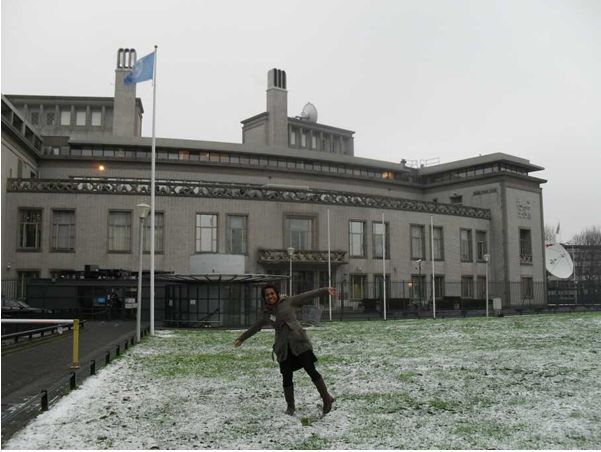

Making An Application
The Sir Richard May Trust welcomes applications from law students and recently qualified graduates throughout the developing world who wish to undertake an internship in an International Humanitarian Court of Law. Candidates must be able to demonstrate academic excellence, a genuine commitment to International Humanitarian Law and a clear plan to raise awareness of International Humanitarian Law in their home country after completion of the internship. The Trust is designed to help those who would otherwise be unable to afford to undertake the internship. Awards are generally in the region of £1,000 - £2,000 and can be combined with other sources of funding.
The trustees generally make awards in February and September of each year. Candidates are encouraged to submit their applications by this date to ensure their applications are considered for an award.
Click here to apply.
Aiman Singh Kler from India studied law at Jindal Law School and was an intern with the UN Mechanism for International Criminal Tribunals (Tanzania). Aiman’s interest in human rights stems from various electives taken up in law school such as International Relations, International Criminal Law, and Public International Law, and also due to his internships with the Human Rights Law Network and subsequently the Punjab State Human Rights Commission. While interning with the Witness Support and Protection Unit (WISP) at the UNMICT, he was exposed to various drafting tasks such as drafting Affidavits, Statements of Consents, memos and various Applications. He was also part of a project that involved the consolidation of relevant information of all Protected Witnesses. The internship was particularly memorable for Aiman as he got a chance to visit the UN-Detention facility due to some asset takeover work and also because he was part of the historic cornerstone ceremony on the new UNMICT premises. Currently he is pursuing a judicial clerkship under Justice J.R Midha in the Delhi High Court in India.
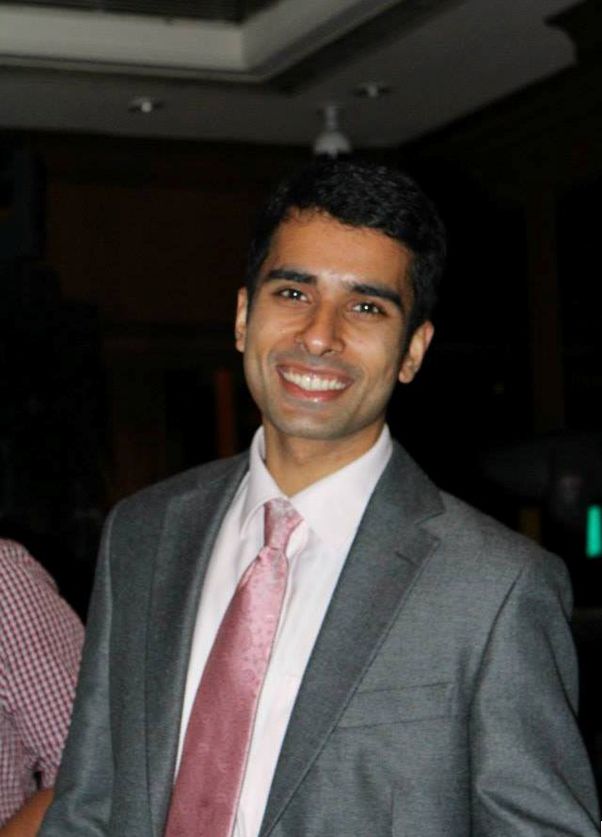
Sara Hassan from Egypt was an intern in the Appeals Chamber of the International Criminal Court in The Hague, Netherlands, for three months. She tells us in recounting her experience that it was truly eye-opening and affected both her academic and non-academic perspectives. She had been seeking to join the ICC for two years. It was particularly vital for her in that her Ph. D. is closely related to the work of the ICC, especially the Command and Superior Responsibility for Crimes against Humanity before the ICC. Therefore being at the heart of the work of the Court and taking part in its operation would be a tremendous benefit for her thesis. Moreover, in her current position as a criminal law lecturer (in the Criminal Law Department, Faculty of Law, Mansoura University, Egypt) it is very important that she explore other areas of the law such as International Law and International Criminal Law. She also gained a knowledge of the practical side of the practice of law. And the context of the ICC was a most fruitful environment in which to deepen her appreciation of international law in action and of its essentially humanitarian nature.
Charles Njemo Batumani from Cameroon was an intern with the Appeals Chamber of the International Criminal Tribunal for Rwanda, The Hague, Netherlands. His interest in international humanitarian law originates from his personal circumstances in that, in his home district of Bakassi, the Cameroon-Nigeria dispute over Bakassi resulted in civilian casualties and it was only through the intervention of the International Court of Justice that more lives were saved. His particular area of interest is the right to Free, Prior and Informed Consent (FPIC) and women’s socioeconomic rights in impoverished and marginalised communities. He is currently exercising his expertise with FIT Cameroon – an NGO which promotes open government to achieve inclusive growth in marginalised and impoverished communities in Cameroon through collaborative partnership with the public sector, civil society, private sector and interest groups.

Gabriela de Santana from Brazil was an intern in the Office of the Prosecutor at the International Criminal Tribunal assisting in the investigation and prosecution of the most recent armed conflict situations. She had previously interned at the Yugoslav Tribunal, working on the Hadzic case where she conducted legal research, assessing evidence and the admissibility of documents, elaborated witness summaries, and attended court sessions. Gabriela currently works at the Integrated Peace-building Office in Guinea-Bissau, Western Africa.
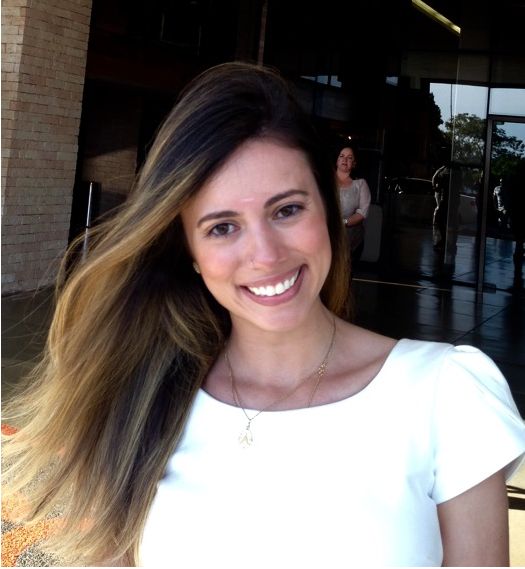
Reva Mann from India was an intern with the UN Mechanism for International Criminal Tribunals (Tanzania). In her application to the Trust she told us that while in law school in India she had written a paper on the Rwandan Genocide and it was that which had led her to an internship with the Rwanda Tribunal being her first choice. In future she wished to return to India and work with organisations aimed at improving human rights and preventing violations of such rights.
Lydia Mwalimu Adude from Kenya studied International Humanitarian Law and International Criminal Law as part of her LL.B. degree at Kenyatta University School of Law, not only because of the current civil and political strife in some African countries but also because she wanted to know the legal status of the post-election violence in the aftermath of the 2007 presidential elections in Kenya. Subsequently she took part in the International Nuremberg Principles Academy Summer School Program on International Criminal Law during which she visited the ICC and the ICTY. She undertook an internship at the International Criminal Court in 2014, partly funded by an award from the Sir Richard May Trust and an award from the Peace and Justice Initiative (PJI) in The Hague, under the PJI Fellowship in International Criminal Law. She is particularly interested in the problems relating to the enforcement of the Rome Statute of the ICC because a number of States are not parties to the Statute. She told us in her application to the Trust that she hoped to be actively engaged as an international criminal lawyer more so as a victims’ representative in cases of violations of international humanitarian law, and also to work for peace in Africa, especially in Uganda. She successfully completed her internship at the ICC’s Legal Advisory Section of the Office of the Prosecutor having worked on a number of projects including: conducting legal research on the drafting history of the ICC’s penalty system, complementary aspects of regional courts, national sentencing practice, and disciplinary measures against former ICC staff members who break their confidentiality obligations. She also took part in: drafting weekly court reports; the development of the Office of the Prosecutor’s Operation Manual; assessing standards of evidence and charging practice; the use of social media by ICC staff members; contract review and the assessment of national impediments to contracting with the ICC; and planning and organising the Guest Lectures of the Office of the Prosecutor. In 2015, she also undertook an internship in the Office of the Prosecutor at the Special Tribunal for Lebanon (STL). Her main motivation in applying for an internship at the STL was in order to understand the intricacies of prosecuting the crime of terrorism in the face of the current prevailing global threat on a number of novel issues such as: conducting comparative legal research on the presentation of international call data records and the resulting opinion evidence before the Trial Chamber; and conducting legal research on the admissibility before the Trial Chamber of documents obtained from the WikiLeaks website. She then proceeded to Harvard Law School in the autumn of 2015 where she is now pursuing an LL.M degree with a particular focus on Public International Law, especially on the intersections of International Humanitarian Law, International Human Rights Law, and International Criminal Law.
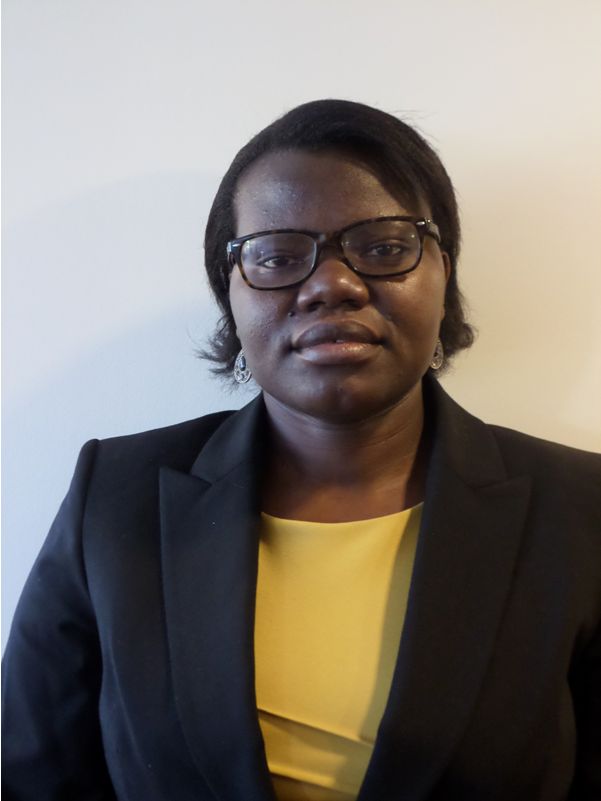
Collins Mbuayang from Cameroon served as an intern at the International Criminal Tribunal for the former Yugoslavia. In his application he told us that, because international criminal law has not been extensively dealt with in Cameroonian jurisprudence, he wanted to be involved with extending knowledge of the subject in Cameroon, in particular by writing articles in legal journals and by teaching. He is currently further extending his knowledge of international criminal law by studying for a Ph.D at Giessen University in Germany.
Shama Banoo Hussain Abbasi from India interned at the UN Mechanism for International Tribunals (Arusha, Tanzania). Before becoming an intern at INMIT, she held internships at a number of institutions including the Madhya Pradesh High Court and the India Supreme Court. She told us in her application that a topic which particularly interested her was whether the identification of rape as war crime was as progressive at first sight as it appeared to be, or whether it in fact reinforced gender stereotypes.
Salma Sherifi Khajedehi from Iran was awarded an internship at the International Criminal Court. She studied law at two Iranian universities and then at Queen Mary University, London, and McGill University and the University of Montreal. She is pursuing her Ph.D. in international law at the University of Montreal. Her personal experiences during the Iran-Iraq War and her awareness of the plight of refugees, especially women, led to her interest in international humanitarian law. At the International Criminal Court she worked at the Office of the Prosecutor where she was part of a team which was responsible for the preliminary examination of the situations of atrocity referred to the Court, and for preparing the reports for the Prosecutor to suggest whether or not those situations fall within the jurisdiction of the Court. She herself was tasked with monitoring situations and assessing the jurisdiction of the Court by drafting reports and updating databases. She much enjoyed being in the company of people from different backgrounds who work together to end impunity for the perpetrators of the most heinous crimes. At present (2016) she is working as a volunteer at the Refugee and Immigration Legal Service in Brisbane, an organisation which is dedicated to assisting vulnerable asylum seekers in Australia.

Shahlo Ovezniyazova from Turkmenistan became an intern at ICTY. She has studied law at the American University of Central Asia and then did an MA in Political Science at the OSCE (Organisation for Cooperation and Security in Europe) Academy. She then became a legal assistant at the Association for Human Rights in Central Asia (based in France) and then a legal intern at the ICC after which she returned to Turkmenistan. Her interest in international justice arose originally from hearing about the conflict in the Balkans and from seeing the ICTY trials on TV. She is particularly interested in the distinction between civilians and combatants, which may be relevant to considering the question of individual criminal liability as regards military commanders and political leaders and also raises questions relating to direct participation in hostilities, private military contractors, terrorism etc. She intends to gain a postgraduate degree in international humanitarian law and then to increase awareness of the subject in her own country and then to teach the subject at Turkmeni academic institution. She is currently working for a local Dutch organisation focussed on youth and is acting as co-ordinator on international projects.
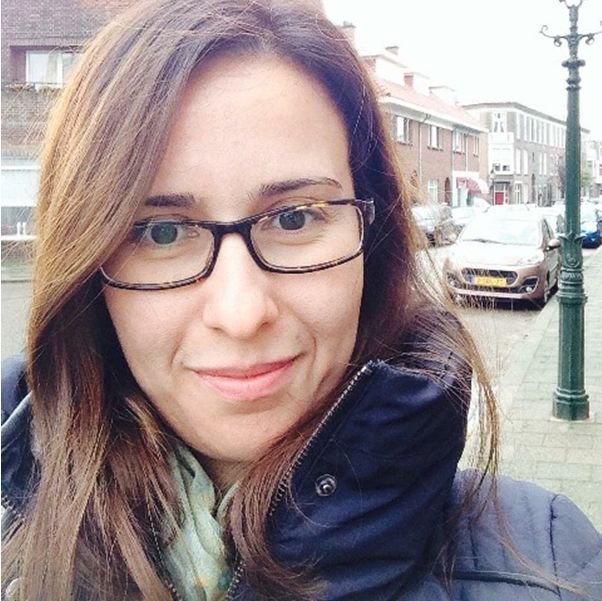
Deborah Moraa Orina, from Kenya, was first of all an intern at the International Criminal Court where she was at the Victims Participation and Reparations Section. Among her tasks was the analysis and processing of victims’ applications which afforded her great insight into the actual crimes concerned as narrated by the victims. She then spent three months with the ICTY Appeals Chamber. Both these internships provided valuable experience and while at the ICTY she strengthened her drafting skills and increased her knowledge of international humanitarian/criminal law. Subsequently she pursued a postgraduate at the University of the Western Cape, South Africa, on Transnational Criminal Justice, an International and African Perspective, drawing on her experience in both her internships, which contributed to her understanding of Transitional Justice and International Humanitarian Law. She currently works as an Associate Legal Officer with the UNHCR.
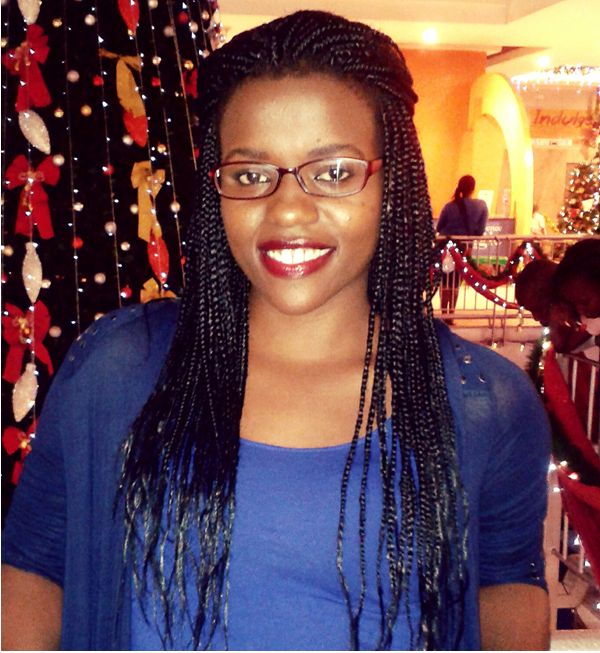
Raissa Njoya from Cameroon studied at the Geneva Academy of International Humanitarian Law before starting on her internship at the ICTY. At the Tribunal the issues in the cases she was involved with included persecution as a crime against humanity, and the forms of criminal responsibility notably aiding and abetting. The latest views of international judges on the constitutive element of aiding and abetting in the Perisic case (Appeal Chambers’ Decision) led her to write an article on the subject. She then worked for two years in the Democratic Republic of the Congo with an organisation providing protection and assistance to internally displaced persons and refugees. She further moved to Zimbabwe for monitoring detention facilities as an ICRC (International Committee of the Red Cross).

Emile Ouedrago, from Burkina Faso, was an intern at the International Criminal Tribunal for the former Yugoslavia. Before his internship he studied international humanitarian law in Switzerland. His time at the ICTY provided, he told us, a rich and unique practical experience and he was impressed by the hard work of the Tribunal’s judges and lawyers in ensuring fair and just trials and familiarised him with the use of the appropriate research tools. The case he particularly involved was that of Prelic where the defendants were mostly accused of crimes against humanity and war crimes arising from their participation in acts committed during the conflict. He tells us that his experience greatly benefitted him as he now teaching at the University of Quebec and soon will be doing so in Burkina Faso. He expects that before long he will be ‘out in the field’ in numerous conflict zones and what he learned during his internship will be a great asset in educating the parties involved in those conflicts about the need to respect international humanitarian law.

Anne Ayama Agbo, from Togo, was an intern with the Appeal Chamber of the International Criminal Tribunal for Rwanda. She had previously studied at the University of Lome and then did a Ph D in France in Public International Law. She wrote an article on the use of rape as a weapon of war in conflicts in Africa so that attention would be drawn to this serious issue.
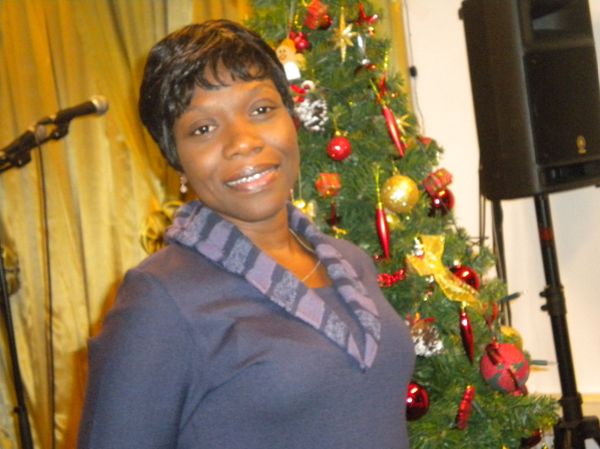
Shubangi Bhadada from India read for her Master’s Degree at Oxford and then became an intern at the ICTY where she was attached to Trial Chamber II which was hearing the Hadzic case. She was involved with analysing evidence and previous decisions of the Appeal Chamber for the chamber and assisted in drafting decisions and orders. Her intention, she told us in her application to the Trust, was to return to India when her internship was completed and to contribute to policy making in the fields of international humanitarian/criminal law, her particular interest being the classification of armed conflicts into international and non-international conflicts. This is of particular relevance in India where there have been not only several wars but numerous border conflicts.

Marwa Youssef Elbesiky from Egypt was in the Pre-Trial chamber of the ICC. In her application to the Trust she wrote that she was particularly concerned with the protection of women in armed conflicts. During her internship she was in a Pre-Trial Chamber during which she deepened her knowledge of the Rome Statute and its application. Her experience during her internship has led her to encourage colleagues in her home country to gain experience similar to her in international criminal tribunals. For herself, her ultimate ambition is, despite the fact that Egyptian law does not permit women to be judges in criminal matters, to come back at some time in the future to be the first woman judge at the ICC!

Juan Manuel Zarama from Colombia studied Law and Political Philosophy (M.A.)in Bogota and obtained an LL.M in International Law in the United States. After graduation, he worked with the International Bar Association (IBA) Legal Internship Programme in the Human Rights Institute (HRI) in London. He was then selected for the International Criminal Court (ICC) programme. During his time in The Hague he monitored fair trial and defence-related issues at the ICC’s pre-trial and trial proceedings and provided extensive research for the IBA report Witnesses before the International Criminal Court (2013). Thanks to that international experience Juan, on his return to Colombia, has worked as a consultant with the National Centre for Historical Memory, the International Organization for Migration (IOM), private consultancy agencies, and universities. His work has focused on internal forced displacement and the situation of Columbian refugees in Europe and South and North America.

Malek Hamad from Syria was an intern with the Appeals Chamber of the ICTR. He was studying in Paris when the conflict in his country began. He lost contact with his family; he believes they escaped to a refugee camp. In his application to the Trust he told us that he would like to see violations of international humanitarian law criminalised by individual countries worldwide so that international law standards can be applied worldwide. While he was at the Tribunal he was given a number of lengthy appeal judgments (approx 300 pp each) which he summarised giving such details as whether the defendants pleaded guilty/not guilty/ aggravating/extenuating, verdicts etc. He returned to Paris to finish his studies and then sought employment in the field of international/criminal humanitarian law.
Marie-Leonie Monteiro from Senegal received an award for an internship with the Office of the Public Counsel for the Defence at the ICC. She had previously, as a compulsory part of her Master’s Degree in International Criminal Law, been an intern at the Appeal Chamber of the International Tribunals for the former Yugoslavia and Rwanda where she was legal assistant to Judge Vaz, also from Senegal, where she had drafted memoranda, undertaken legal research and engaged in discussion about legal issues in on-going cases. While her own country did not suffer from serious humanitarian problems, she felt there was insufficient attention to human rights with regard, for instance, to sexual orientation and the protection of children.
Catherine (Kate) Irura interned with the Appeals Chamber of the ICTR where her work involved the filing, review, analysis and service of pleadings filed by the parties, and participation in the review of the Basic Documents and Filing Directions of the ICTR. She helped to prepare a judicial history and wrote an opinion on the Legal Position of Independent Corroboration of Witness Testimonies in several countries for consideration in a case before the Appeals Chamber. She also, while at the Registry, researched a paper on the challenges facing acquitted persons and released detainees in obtaining asylum and possible interventions. She then did a three-month internship at the ICC as a member of a defence team in a case before that court. Subsequently she commenced a Master’s Degree in Environmental Governance at the University of Freiburg, Germany, and worked on a scientific review paper on water security in conflict and disaster zones, a subject of pressing importance in today’s world. Her Master’s thesis was a comparative analysis of the UN Watercourses Convention, the UNECE Water Convention and the draft IGAD Regional Water Resources protocol. It included a case study of the Omo-Turkana basin, analysing the social, environmental and stakeholder contexts arising from upstream developments on the Omo-Gibe River in Ethiopia. Catherine has since worked as a Project Research Assistant in the Building River Dialogue and Governance (BRIDGE) at the IUCN Environmental Law Centre in Bonn, where she developed the Legal Assistance Tool on Water Governance Capacity, after conducting comparative research on water laws of 10 countries, including Kenya. Catherine is now working with SOWITEC Kenya, a recently established renewable energy firm, as a Project Developer, Compliance Officer and Lawyer. In her new role Catherine supervises land securing, environmental and social impact assessments and other legal aspects of project development.
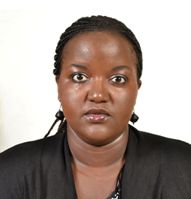
Goldah Nekesa Matete, from Kenya, in 2012 was an intern at the International Criminal Tribunal for the former Yugoslavia. Goldah was with a team working on the case of Popovic and was assigned to one of the appeal judges and aided his legal officer in assisting the judge. The case, in which there were originally six (later reduced to five) and arose out of the Srebrenica massacre), was highly complex involving issues of joint criminal enterprise and aiding and abetting. The appeal judgment was delivered later that year. Goldah’s work included assisting a drafting team and undertaking research assignments. After that she was appointed an Associate Legal Officer in the ICTY Appeals Chamber, in which employment she is still continuing. Eventually, her intention is to return to Kenya with the hope of working towards improving the justice system there as an International Crimes Division is to be set up at the High Court. She tells us she is very grateful to the Trust and to its generous donors.
Daniel Anuol Deng from South Sudan was an intern with the Appeals Chamber of the International Criminal Tribunal for Rwanda in The Hague. He has an Ll.B. from Teesside University, an LL.M. from Northumbria University and he passed the Bar Vocational Course from the Northumbria School of Law (through Lincoln’s Inn). During his internship he worked with judges and assisted with drafting memos and judgments as well as undertaking legal research. When he finished his internship, he tells us that he felt compelled to return to his new-founded nation of South Sudan and make a contribution in the field of law. However, he soon found that the legal system there is in such a state that it is barely able to function, so, after serving briefly as Director of the Legal Certification Unit in the South Sudan Ministry of Defence and wishing to work for change so that the rule of law would have real meaning, he set up his own law practice (Awatkeer Chambers www.awatkeerlaw.com) where he practises as a barrister (he is also Managing Partner). The firm’s practice includes human rights, criminal law and also has a commercial law division which advises clients such as NGOs, companies and charities. He also teaches law to law graduates at legal training centres. He has expressed his gratitude to the Trust for enabling him to expand his knowledge of international humanitarian law.

Mohamed Youssef from Egypt, having studied at the Sorbonne’s branch in Cairo University and the University of Dundee in Scotland, told us in his application that his abiding concern was to prevent social frustration and political sloganizing in the Arab world from undermining fair treatment of suspects and defendants and to play a full part in ensuring that reconciliation is not impaired by vindictive measures and that neither domestic nor international considerations damage the right to a fair trial. Mohamed spent several months at the International Criminal Tribunal for the former Yugoslavia as an intern in a Trial Chamber focusing on the Haradinaj et al retrial. During this time he realised that the role of international criminal justice does not stop with the prosecution of suspects for serious crimes but that there is also a heavy yet essential responsibility to take part in the process of reconciliation and state building. After leaving ICTY, he began to work at the International Criminal Court with the Saif al-Islam Gaddafi defence team. Thanks to Mohamed’s experience at the ICTY he then became legal consultant at the Office of the Public Counsel for the Defence, an independent office falling within the ICC, dedicated to promoting, representing and researching the rights of the defence and persons entitled to legal assistance, and endeavouring to realise an ‘equality of arms’ for the defence throughout all stages of investigation and trial. However, in August 2013 Mohamed had to return to Egypt due to military conscription where he taught in the adult literacy programme. After his military service Mohamed joined the Office of the International Co-investigating judge at the ECCC (Extraordinary Chambers in the Courts of Cambodia) under the UN assistance for the Khmer Rouge Trials. He focussed primarily on Cases 0003 and 0004 and acquired a rich experience working in the procedural team. He had the opportunity to work with some of the most highly qualified and competent legal officers, and he is, he tells us, grateful for the memorable time he spent at the Office.
Mohamed then joined the International Commission of Jurists (ICJ) and has been working since July 2015 as a legal researcher in the MENA (Middle East and North Africa) programme based in the field office of Tunis. So far he has taken part in the writing of extensive reports in light of international law and standards, as well as the organisation of relevant conferences with civil society, legal experts and high governmental and non-governmental officials. He is grateful for being an active member of this unique institution and he is looking forward to the ICJ’s mission to promote and protect human rights.
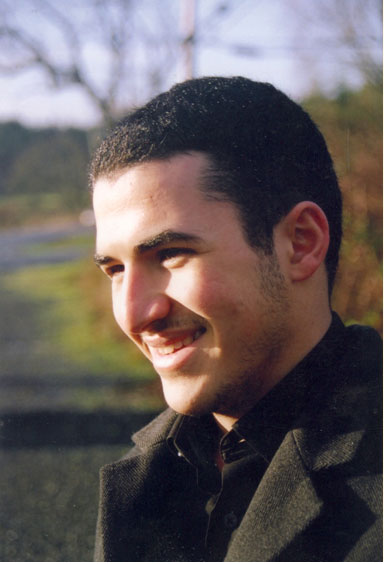
Gracious Miti-Siluyele from Zambia studied at the University of the Western Cape (SA) and was an intern at the International Criminal Tribunal for Rwanda earlier this year. Much of her time was spent on the ‘massacre project’ where she examined cases involving mass killings of from 100 to 1000+ people which she found particularly affecting. She also took part in the ‘arrest project’, working under a legal officer, profiling those arrested for crimes against humanity such as genocide, murder and rape; one such case was Prosecutor v Pauline Nyiramusuhuko and Others. She also attended various trials including that of Prosecutor v Ngirabatware, the former Minister of Planning charged with inciting the killings of Tutsis, who had fled the country after the Genocide, was arrested in Germany and brought to the ICTR for trial. Currently Gracious is lecturing at the Zambian Open University and in Law School on Labour Law and Human Rights and is also working in consultancy.

Mackline Ingabire from Rwanda, studied at the National University of Rwanda and the University of Capetown (SA). She joined the Rwanda Tribunal (ICTR) in the latter part of 2011. Her interest in international humanitarian law stems from the terrible genocide in her country which claimed more than one million lives in 100 days. At the Tribunal she was assigned to the case of Ndahimana who was convicted of genocide and crimes against humanity in connection with the massacre of about 2000 civilians in Kivumu province of which he was Bourgmestre. Mackline’s duties included summarizing the evidence of witnesses, drafting judgments, taking part in deliberations, attending court hearings and compiling evidence and exhibits. Her first-hand experience of international criminal proceedings extended her understanding of international criminal and humanitarian law and her hopes of encouraging other Rwandans to participate. On her return to Rwanda she began teaching part-time at the Faculty of Law at the Independent University of Kigali where she passed on the benefit of her experience at the ICTR to her students. In 2013 she assisted in teaching a course at the Kigali centre for Genocide Studies in a course on international criminal law. She has also taught general criminal law. She is currently (2016) researching the ‘deterrent effect of the International Criminal Court and other international courts for the International Nuremberg Principles Academy’ and has been assigned to the Rwanda Chapter, assessing the deterrent effect of the Rwanda Tribunal. On the 19th February 2016 she was appointed a Senior State Attorney in the Rwandan Attorney-General’s Office.
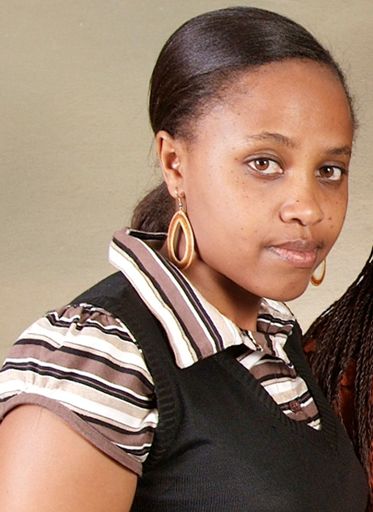
Margaret Wagana from Uganda, who read law at the National University of Lesotho in Lesotho, and the Law Development Centre in Uganda, joined the Rwanda Tribunal from April to June 2011. Among the cases she was assigned to was that of the Pentecostal preacher Uwinkindi who was charged with genocide and crimes against humanity; that case was referred to the national jurisdiction of Rwanda, the first such case in the Tribunal’s history. Other cases were Ndindilylmana and Nyiramasuhuko et al. Margaret’s interest in international humanitarian law arises from her experiences of conflict. Her family had direct experience of the horrors of war: her parents lived in Uganda when it was under the rule of Idi Amin; she was living in Lesotho when there was violent political upheaval in 1998; and she and her family were accidentally caught up in the post-election violence in Kenya in January 2008. Since June 2012 she has been working in Lira, Northern Uganda, as a Grade One Magistrate. She told us that several problems arising from criminal disputes and land disputes stemmed from the extreme violence meted out by the Lord’s Resistance Army in Northern Uganda and of her hope that, for all the domestic nature of such disputes, their peaceful resolution would contribute to international humanitarian law. In 2013 Margaret achieved a Diploma upon completing a number of courses including one course on Democracy, Human Rights and the Courts from the Copenhagen Business School. She has completed her Masters’ Degree at the Southern and Eastern African Regional Centre for Woman’s Law at the University of Zimbabwe. She is also a member of the International Women Judges’ Association and FIDA (Uganda Chapter). She tells us that she is still passionate about women’s and children’s rights and hopes to add more value to the world.

Maria Mercedes Martinez Carrizo from Panama was awarded a six month internship in the Trial Chamber at the International Criminal Tribunal for the Former Yugoslavia. Maria holds an Ll.B in Law and Political Science from Santa Maria La Antigua University in Panama City and an Ll.M. in International Human Rights Law from Northwestern University. During her time at the Tribunal, Maria worked on the trials of Stanisic and Zupljanin who were both charged with crimes against humanity and violations of the laws of war. She assisted in conducting research on substantive law, procedural rules, and evidence in the case. Moreover, she was involved in the drafting, editing and filing of decisions on motions, and contributing to team discussions on legal and procedural issues arising in the case, including the drafting of a section on the applicable law on individual criminal responsibility which was ultimately included in the final trial judgment in the case. Since 2012 Maria has been the Disaster Law Officer in the International Federation of Red Cross and Red Crescent Societies (IFRC) regional office for the Americas. Her duties involve providing technical advice to governments, national Red Cross Societies and other humanitarian partners on strengthening Disaster Law, including the drafting of legal instruments pertinent to disaster preparedness and response. In 2015 she was deployed to Ethiopia on a humanitarian mission and also participated as an associate member of the UNDAC evaluation in Paraguay.

Peter Katonene Mwesigwa from Uganda has had two internships, first with the Special Court for Sierra Leone for the Charles Taylor trial, then with the International Criminal Court. Having witnessed the effects of the conflicts in Northern Uganda and Congo, he chose to study in particular International Law, International Human Rights Law and International Humanitarian Law. His particular interest is in whether the war between the Lord’s Resistance Army and the Uganda government is an international or an internal conflict. In April 2011 he joined the Office of the Public Prosecutor for Victims where he conducted factual investigations into the post-election violence in Kenya. He was selected by the newly appointed Common Legal Representative for Victims to join in assisting the team in the Prosecutor v the Ruto, Kosguy and Sang cases. When Peter returns to Uganda he plans to join the recently established War Crimes Unit in Uganda’s High Court judicial system. He and others are already working towards the foundation of an NGO in Uganda to promote the understanding and observance of international humanitarian law

Dooter Malu from Nigeria is a law graduate of the University of Jos and a barrister. As a child he witnessed frequent conflicts arising from competing identity claims based on religion, ethnicity and competition for state resources and this led him to move from a career as a corporate lawyer to take an Ll.M. in International Criminal and Humanitarian Law. He was an intern in the Appeals section of the Office of the Prosecutor at the Yugoslav Tribunal from January to September 2011. Among the cases he was involved in was that of Popovic and Others in which he worked as legal counsel, assisting attorneys in drafting and preparing examinations and reviewing the Tribunal jurisprudence regarding the effectiveness of protective custody. When Dooter returned to Nigeria he began working at the National Human Rights Commission of Nigeria as Head of the Freedom of Information Unit and Technical Adviser to the Executive Secretary/Chief Executive. In that role he was part of several investigations of human rights violations in Nigeria and was involved in the promotion of Nigeria’s Freedom of Information Law He subsequently enrolled in Harvard Law School and is currently an international law and development consultant with Kings and Goodman.
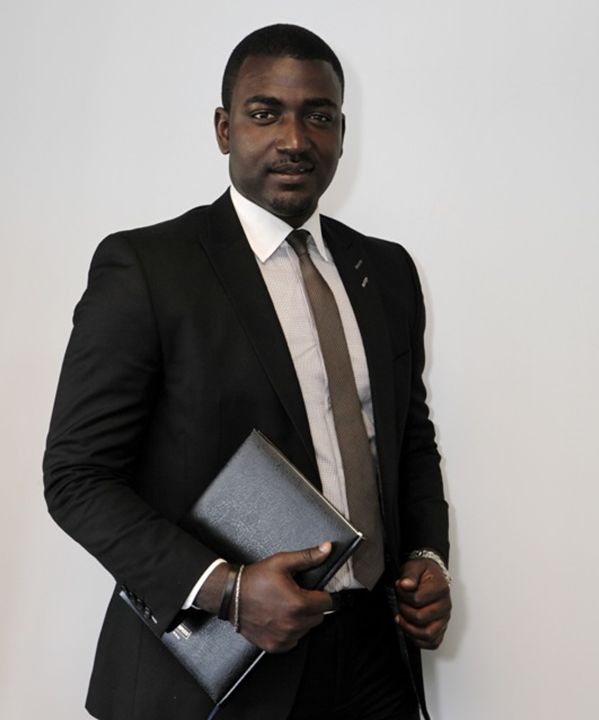
Ricardo Sanchez Perez del Pozo from Mexico joined the Yugoslav Tribunal as an intern in June 2011 and was assigned to Trial Chamber III dealing with the case of Karadzic. He assisted the Legal Officers with the analysis of motions and pleadings from the parties and drafted various legal documents and undertook research relating to the trial on substantive and procedural matters relevant to international criminal and humanitarian matters including assessing the credibility of witnesses. In his application to the Trust for an award he told us that his ambition was to enhance the then rather low interest in the subject in his country and to promote awareness of the reach and obligatory character of international law in the Mexican judicial system. On Ricardo’s return to Mexico after his internship he became Deputy Director General of the Human Rights Unit of the Secretariat of the Government of Mexico. Part of his responsibilities related to the increase of awareness of international humanitarian law. He also represents the Secretariat to the Inter-Secretarial Commission on International Humanitarian Law and has advanced the possible ratification of the amendments to the Rome Statute and the additional protocols to the Geneva Conventions pending their approval by Mexico. In 2013 he organised a national congress to promote international humanitarian law; more than 300 people attended. He plans to organise more such congresses. He also represents the Mexican government to the Latin-American network to prevent genocide and mass atrocities and the ICRC continental conference of International Humanitarian Law Commissions of the Americas.
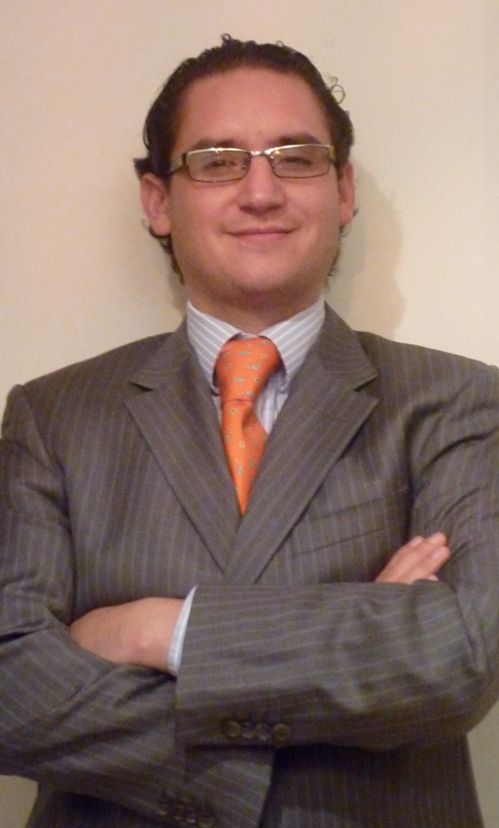
Chitrangada Singh studied law at Panjab University, Chandigarh, India, and also has an Ll.M. Her especial interest is in certain activities of private corporations, particularly private military and security organisations and organisations involved in the exploitation of natural or mineral resources, in armed conflicts and whether or not there could be liability in international criminal law for these activities. Her time at the Yugoslav Tribunal contributed greatly to her understanding of the practical issues involved and discussions with her colleagues were fruitful and rewarding. She was a ‘floater intern’ working as part of the drafting team for the Lukic and Lukic appeal judgment where her tasks included preparation for appeals hearings, updating the procedural background, drafting deliberations scripts and certain portions of the draft judgment and context-specific research on issues relating to identification evidence, aiding and abetting, and hearsay and accomplice evidence.

Prosper Akingar Nandibaye from Chad interned at the Yugoslav Tribunal for five months from November 2011. He took a degree in General Law at the University of N’Djamena in Chad and then taught in schools in Chad and then worked for an NGO before taking a Master’s Degree in Spain in the sociology of law. During his internship his work included analysing issues such as joint criminal liability and criminal responsibility in various cases. He attended deliberations of the judges of the Appeals Chambers. With his knowledge of French and English he translated various documents from one language to the other and drafted a number of preparatory papers for his judge. Prosper tells us that his time at the Tribunal was a wonderful empirical experience which has added great value to his theoretical knowledge of international criminal law. After Prosper completed his internship he returned to his home country and continued to work for the UNHCR. From 2013 to 2015 he worked for UNICEF, dealing with child protection, where he was involved with monitoring and reporting mechanisms aimed at preventing the military recruitment of children under the Convention on the Rights of the Child 1989 which was adopted by the U.N. He expects to return to UNICEF in April 2016 as a Child Protection Officer. He also dealt with Chadian refugees from the Central African Republic following the political crisis in that country. He is an associate professor at the University of N’Djamena in Chad where he teaches constitutional law and is also involved in the Presidential elections in Chad in April 2016.

Sylvie Richard Kinabo from Tanzania was an intern at the Yugoslav Tribunal from January to July 2011. Although her country has not itself experienced the types of conflict that have arisen elsewhere in Africa there are human rights abuses such as the abduction and killing of albino children. She intends upon her return to Tanzania to promote awareness of these issues and also international criminal and humanitarian law issues.
Mokgabo Sarah Kupe from Botswana took up an internship in the Monitoring Section of the International Bar Association’s Monitoring and Outreach Programme at the International Criminal Court from May to October 2011. Her particular interest is the extent to which public education influences the actions of combatants and promotes peace and justice initiatives.
Judy Mionkia graduate of the United States International University, Nairobi, Kenya, monitored the trial of Charles Taylor at the Special Court for Sierra Leone (in the International Criminal Court in The Hague from January 2010. She was responsible for daily in-court monitoring and writing substantive monthly reports on legal developments, testimony, evidentiary issues, and motions and Trial Chamber and Appeals Chamber decisions. She also researched and wrote thematic reports on legal issues arising during trial. Subsequently Judy was accepted by the International Criminal Court to be on their list of Assistants to Counsel and was picked by a Kenyan Defence Team to be their Legal Assistant/Case Manager. She is firmly convinced of the importance of the human rights of defendants to be legally represented - something that she has had to explain to many people, even her friends! Judy currently works for the United Nations Office on Drugs and Crime where she is researching case law and legislation showing the trend in criminalising organised crime in national jurisdictions.
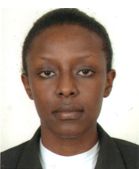
Caidan Cao, before joining the Yugoslav Tribunal in 2010, studied law at the North University of China. While still a student, she was involved in a campaign to inform women in rural areas about their rights under marriage law and family law. Later on, while working for a Chinese company, she promoted employment rights in the company particularly those relating to women. After that, she studied for a postgraduate degree in Human Rights Law at Lund University. While she interned at the Tribunal, her responsibilities included assisting the Judges and Senior Legal Officers, carrying out research, drafting decisions, witness summaries and judgments, and participating in the analysis and discussion of proceedings; this work deepened her understanding of international criminal and humanitarian law and developed her research skills. Subsequently she was from December 2010 to February 2011 a project assistant in the Danish Institute of Human Rights in Copenhagen. Caidan Cao is now Legal Counsel for Greenpeace East Asia in Beijing. She is responsible for all the legal issues involved in the area including mainland China and Hong Kong, Taiwan and South Korea: these involve both international and national law.

Sherise M. Gayle, from Jamaica, a graduate of the University of the West Indies and Norman Manley Law School with an Ll.M in Public International Law from Queen Mary College, London, interned at the Yugoslav Tribunal in 2010. She performed a variety of tasks including researching and preparing memoranda on various areas of international humanitarian and criminal law, summarizing judgments for the Tribunal’s database, participating in lecture series for interns put on by the Tribunal and assisting the legal officers in the Office of the President. The experience taught her much about international human rights and made her more aware of the importance of the rules and procedures of international criminal tribunals. Sherise was then employed as an Associate Legal Officer in the Appeals Chamber for the Rwanda Tribunal (which sits in The Hague) where she continues to widen her knowledge of international humanitarian law and to contribute to the jurisprudence on the subject. She is currently a Legal Officer in the Appeals Chamber at the Yugoslav tribunal. Sherise intends to pursue her Ph.D and, when she returns to Jamaica, to lecture on international law.
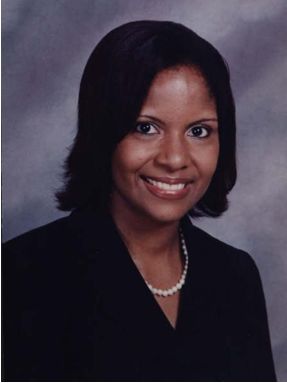
Praveena Nair, having graduated from Kerala Law Academy College and the National Law Academy of India University, Bangalore, interned with the Appeals Chamber of the Rwanda Tribunal in The Hague. It was her first ever internship abroad. She performed a variety of tasks ranging from assisting in the preparation of drafts, summaries and briefs to the updating and reviewing documents for the Tribunal database. She also attended cases being heard by the Yugoslav Tribunal and also the Legacy Conference which discussed how the ICTY legacy could be carried forward. When Praveena returned to Delhi she became Legal Counsel and Research Officer for the NGO HAQ: Centre for Child Rights, providing legal aid and advice in matters referred by Juvenile Justice Boards, Child Welfare Committees etc, conducting training courses on children’s rights, and compiling a report on the implementation in India of the Convention on the Rights of the Child. In June 2012 she joined the India operation of the UNHCR as a UN volunteer and worked as a Protection Assistant with refugees from Afghanistan, Somalia and other countries who are in South Delhi, identifying their protection needs and linking them up with UNHCR services.
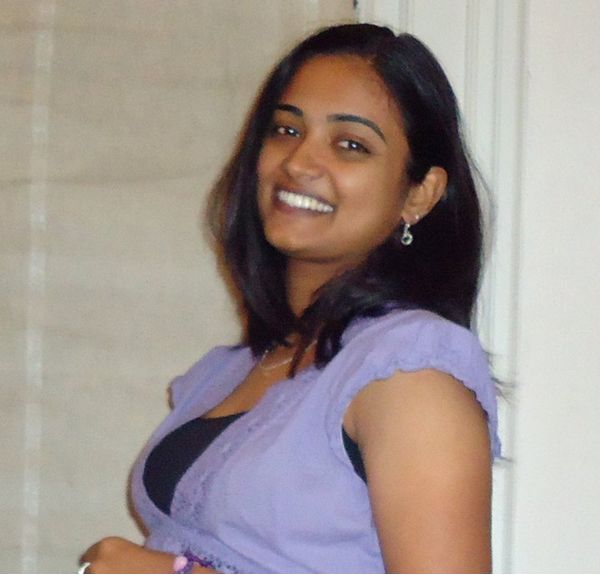
Ernest Ng, a graduate of Hong Kong University, was an intern in the Appeals Chamber of the Yugoslav Tribunal for six months. He was involved in more than twenty cases, substantive or interlocutory, and saw how his academic knowledge of international humanitarian law, a subject in which he had always been interested, translated into practice. He subsequently obtained a Master of Laws (International Law, 1st Class) at Cambridge University and is now practising public and human rights law in Hong Kong. Currently, he also teaches public international law in the University of Hong Kong.

Xintong Wang, who originally came from a tiny town in rural China and funded herself through university in Beijing by winning a general knowledge quiz, was assigned to a trial chamber and found that on her second day she was asked to assist in drafting a legal decision. With the help of the Trial Chamber judges and her supervisors she rose to the challenge and is proud to think that she contributed to the development of international criminal law. She also took an active part in the functioning of the Trial Chamber by drafting and summarising witness testimonies and preparing other legal documents. Her original three months’ term was extended for another two months. While at the Tribunal she passed a written examination to become a legal officer in a Beijing court.

Jasper Gwasira, a graduate from the Nelson Mandela Metropolitan University, was a ‘floater’, not assigned to a particular case but involved in a number of appeal cases. He helped draft decisions and judgments and also researched various legal issues thus broadening his knowledge of international criminal and humanitarian law. He has been awarded a full scholarship by the Geneva Academy for a Master’s Degree in International Criminal Law and Human Rights.
Song Qiang, a graduate of Sun Yat-Sen University, Guangzhou, China, began an internship at the Yugoslav Tribunal in February 2009. On her return to Guangzhou, she told us of her plans to widen awareness of international criminal law in China and to encourage others to take up internships at international criminal tribunals, including taking part in moots.

Watna Mori, from Papua New Guinea, was an intern at the Yugoslav Tribunal from July to December 2009. She said in her application to the Trust that she studied law because she wanted to address injustice, especially in her own country where, although the concept of human rights has gradually gained ground among ordinary Papua New Guineans, progress has been slow. While at the Tribunal she was an intern in Trial Chamber III during the case of Prosecutor v Mico Stanisic and Stoljan Zupljanin where she participated in drafting orders, decisions and research memos, and briefing the three trial judges. She returned to Australia to read for the New South Wales Bar and then did an Ll.M at Amsterdam University. In 2012 she returned to Papua New Guinea where she has worked with the Papua New Guinean Constitutional and Law Reform Commission as a Legal Officer, lectured in International Humanitarian Law part-time at the University of Papua New Guinea and is now a Claims Assistance Provider at the Manus Regional Processing Centre.
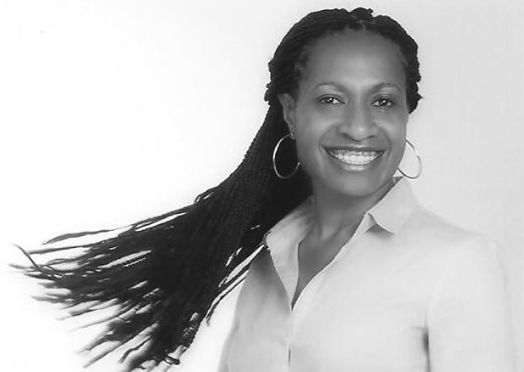
Prince Neto D.C.B Waite from Jamaica, a graduate of the Norman Manley and Harvard Law School, was an intern in the Appeals Chamber of the International Criminal Court in The Hague from June to December 2009 where he was a member of a diverse team of judges, legal officers and other interns. He undertook research and analysis in the areas of public international law, international human rights law, international criminal law, and international humanitarian law as well as comparative research into criminal procedure practice in common law and non-common law systems. He also drafted legal memoranda and contributed to the drafting of decisions and orders for the use of the Appeal Chamber of the Court and had an article, ‘An Inquiry into the ICC Appeals Chamber Exercise of the Power of Remand’, published in a leading international law journal. Since leaving the ICC, Prince Neto went on to serve as a Legal Assistant to an Arbitral Tribunal under the auspices of the International Centre for the Settlement of Investment Disputes, and as a lecturer in Public International Law at the University of the West Indies in Jamaica. He is now at the New York University School of Law finalising a dissertation in which he will critically assess due diligence in international law. He has been admitted to practise law in Jamaica and New York and is currently (2016) in practice with a firm in New York.

Xiaodan Song, a graduate from Wuhan University, was an intern at the Yugoslav tribunal from October 2009 to February 2010. Her interest in international humanitarian law began when she was a student and saw the film Hotel Rwanda which sparked her general interest in the subject, in particular Sudan and the role of transnational corporations in that country.
Norah Nyeko from Uganda was an intern at the Yugoslav Tribunal where she participated in drafting decisons and orders on behalf of the judges, undertook research on international criminal law topics, attended court to follow the testimony of witnesses, and drafted summaries of witness evidence. She tells us that her experience at the Tribunal gave her an increased understanding of how international humanitarian law works in practice and of the relevance of procedural rules. On her return to Uganda, Norah discussed with two non-governmental organisations - one dealing with the promotion of public international law, the other running mentorship programmes for secondary school pupils - how to raise awareness of international humanitarian law. She then, after an internship with the International Criminal Court, worked as a researcher for the NGO Human Rights Centre Uganda. She also lectured on jurisprudence and as a tutorial assistant (international human rights law) at the Uganda Christian University’s Faculty where her experience of international criminal tribunals was particularly useful. Norah then became a Human Rights Officer with the Ugandan Human Rights Commission where she supported the Directorate of Monitoring and Inspections to keep track of the Government of Uganda’s adherence to its international obligations. Whilst at the Commission she was also seconded to the International Organization for Migration Uganda where she monitored first-hand the social and economic challenges that women living in post-conflict Uganda faced. In 2014 she became a Programme Analyst (Junior Professional Officer) with the UN Multi Country Office for India, Bhutan, Maldives and Sri Lanka where she supports the End Violence Campaign against Women Unit on programmes that include the UN Trust to End Violence against Women, the Secretary-General’s UNITE to end Violence against Women, anti-trafficking initiatives, widow empowerment, and safe cities programmes. Norah is currently providing technical assistance to the Ministry of Internal Affairs in Uganda and UNICEF for the development of a national action plan to prevent and respond to online sexual abuse of children.

Goreth Kyakuwa, also from Uganda, wrote that her internship was one of the most challenging yet rewarding experiences of her legal career. She worked on several cases where her duties involved summarising witness testimony and drafting decisions and portions of judgments. For one week she acted as court legal officer. She gained invaluable firsthand insight into how the legal principles and concepts of international criminal law may be applied to the factual situations of war crimes, crimes against humanity and genocide, and useful experience of procedural matters. She also attended a number of lectures and conferences on international criminal and humanitarian law. On her return to Uganda, Goreth drafted a syllabus for a course on international humanitarian and criminal law for the Faculty of Law, Makerere University. From December 2008 to January 2009 she was a legal intern with the Coalition for the International Criminal Court where she was responsible for two cases being heard by the Court (Thomas Lubanga; Jean-Pierre Bemba Gombo) and two situations (Darfur; Sudan). In March 2010 Goreth worked as Visiting Professional with the Field Operations Section of the ICC, particularly, with her knowledge of Uganda, for the ICC’s Review Conference in Uganda and had several publications in Leading Annotated Cases of International Law. She completed her Visiting Professional Contract with the Co-ordinating Planning Unit of the ICC and studied French so as to enable her to pursue a career in Francophone countries in Africa. She plans to do a Ph.D. on the confiscation of assets and the proceeds of crimes by the ICC and is also writing a commentary on five ICC decisions. She is also still hoping to publish the principles of international humanitarian law in Swahili so as to promote wider understanding of the issues in Uganda. In June 2012 Goreth relocated to Bangkok, Thailand, and began work as a Volunteer Legal Adviser at Asylum Access Thailand where she provides legal information, advice, counsel and representation to refugees. She also assists individual refugee clients in asserting other rights to access education, healthcare or to seek employment or resettlement. The clients come from many countries including Sudan, Somalia, Democratic Republic of Congo, Uganda, Zambia, Syria, Iran, Iraq, Pakistan, Sri Lanka, China, Cambodia, Vietnam and Laos. She also has a publication, ‘Interim Release’, in the Annotated Leading Cases of International Criminal Tribunals, vol. 39, The International Criminal Court 2006-2008, Andre Klip and Steven Freeland eds.

